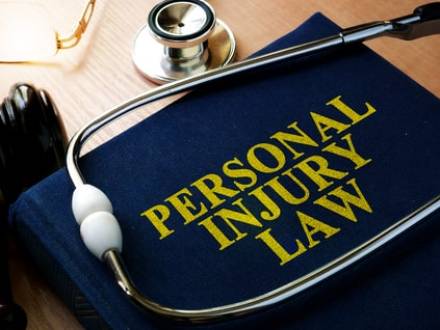Does a Spouse Have Rights to the Other’s Personal Injury Award?
 Dividing up the marital assets is often one of the more contentious aspects of an Illinois divorce. First, marital assets must be clearly separated from one spouse’s separate assets, and then a fair division of the marital assets must be undertaken. Unfortunately, it is sometimes difficult to determine which assets are separate and which are marital.
Dividing up the marital assets is often one of the more contentious aspects of an Illinois divorce. First, marital assets must be clearly separated from one spouse’s separate assets, and then a fair division of the marital assets must be undertaken. Unfortunately, it is sometimes difficult to determine which assets are separate and which are marital.
Nine states in the U.S. are considered community property states, which means marital assets are divided exactly equally regardless of any other considerations. Illinois is an equitable distribution state, which divides marital assets fairly rather than 50/50. Separate assets are generally considered those that one spouse had prior to the marriage or gifts or inheritances received after the marriage.
There are, however, many exceptions to these "rules," which can make determining which assets are separate much more complex. If you received a personal injury award while married, is your spouse entitled to a portion of that award? The best way to get an answer to this question is to speak to a knowledgeable Geneva, IL family law attorney.
What Makes an Asset Separate or Non-Marital?
An individual who has assets prior to the marriage can ensure those assets remain non-marital either through a pre or postnuptial agreement or by keeping them strictly separated throughout the marriage. For example, if Grandma Ruth left a beach house to her granddaughter, that house remains the non-marital property of the granddaughter unless:
- The name of the granddaughter’s spouse is added to the deed of the house.
- The granddaughter’s spouse materially contributes to the maintenance and upkeep of the house.
- Marital funds are used to pay for expenses related to the house.
In these situations, the house could become, at least partially, a marital asset to be split. Gifts and inheritances received during the marriage are under the same rules, remaining non-marital until steps are taken to make them at least partially marital property.
What About a Personal Injury Award or Settlement?
A personal injury settlement or workers’ compensation settlement can significantly complicate the division of marital assets. While an injury settlement is awarded specifically to one spouse, courts have held that it is essentially a marital asset because it compensates for medical expenses and lost wages that affect the entire family.
However, because Illinois requires an equitable distribution of marital assets, the court can grant a larger share of the award to the spouse it was given to, particularly if the settlement included pain and suffering damages. For example, the court might split the settlement 70/30, with the spouse who was awarded the settlement receiving the larger portion since he or she suffered the injuries. The actual division may depend on the approach taken by the judge.
Some judges may take an analytic approach to dividing the settlement, evaluating its purpose and the specific elements of the damages. Lost wages and medical expenses may have been paid out of marital assets, so reimbursement for those economic expenses is considered marital during division. Other elements of the settlement, such as loss of future earnings and pain and suffering, are more likely to be considered non-marital. Property damages could be considered marital or non-marital, depending on the nature of the property damaged.
If the spouse was injured or awarded a workers’ compensation settlement before the marriage—even if the actual award was not received until after the marriage—this is a different story. In this situation, the personal injury award would be considered non-marital property unless the funds were commingled with marital funds following the marriage.
Contact a Kane County, IL Division of Marital Assets Lawyer
If you are facing difficult issues regarding the determination of marital and non-marital assets, it is important to speak to a knowledgeable St. Charles, IL, division of marital assets attorney from The Law Office of Matthew M. Williams, P.C.. Attorney Williams has extensive experience with troubled youth and focuses his practice on mediation and collaborative divorce to simplify the process and make it less adversarial. Call 630-409-8184 today to schedule an initial meeting with an attorney.









